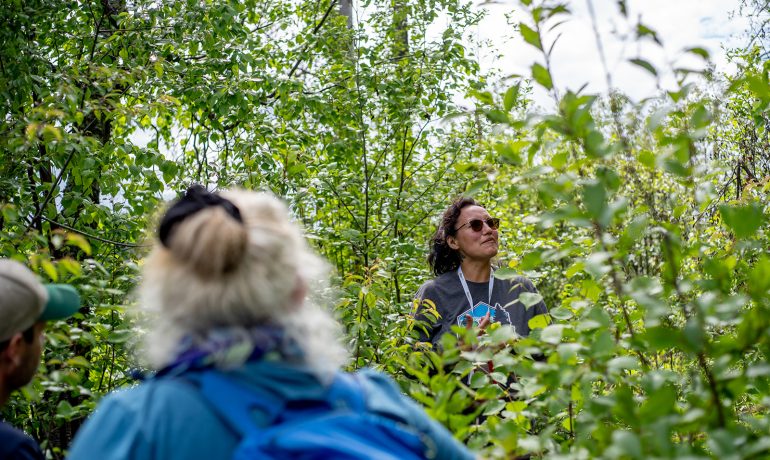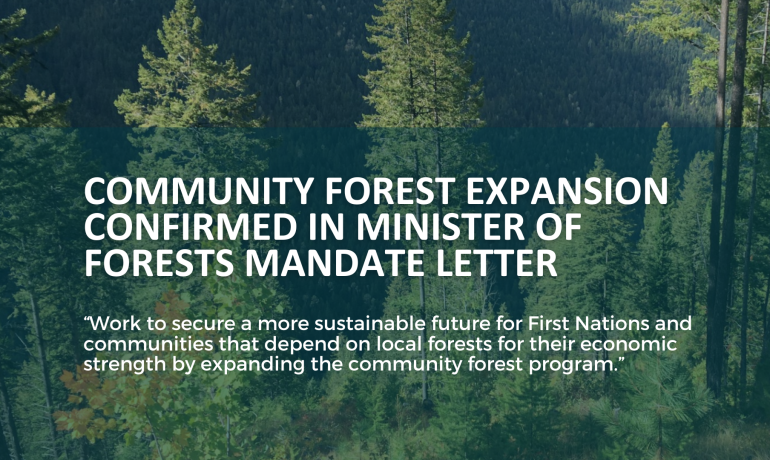The following article is an opinion piece written by Sonia Furstenau, MLA.
The families of striking mill workers on Vancouver Island are facing a hard holiday season after nearly six months on the picket lines.
But they are not alone in their struggles.
There has been a tremendous amount of support from within the community. As one example, Shannon Carlow and Melanie Clinkant have set up a donation drive — I encourage anyone who feels able to support this drive. You can go to the union office in Duncan.
The challenges facing Cowichan Valley families are not a story specific to our community. Small communities across B.C. that rely on forestry are struggling this holiday season, dealing with the impacts of the downturn in the forestry industry and the mill closures and curtailments that come as a result.
These challenges are not new, as mill worker and steelworker member Jack Miller from Port McNeil pointed out in a recent interview on CBC.
But the reality is, we won’t solve the challenges we face in our forestry industry by using flawed tactics from the 1990s and 2000s, making the same wrong-headed, short-sighted decisions that got us here in the first place.
I want the mill workers in my community and across B.C. to know: you are not alone in finding solutions for this decades-old crisis.
We know with the right policies and oversight, forestry can be a truly renewable industry. Finland, Sweden and others have clearly demonstrated this. Their innovation shows how both the total number of trees and total volume of forests can continue expanding even as annual cut allowances increase. That a forest-based bioeconomy requires diversifying how we use our forests by making textile fibers and bioethanol and developing other bioproducts.
B.C. can have an industry where forestry workers make a secure living and take pride in their work. An industry that they can look forward to their children joining.
When I look at the complex challenges we face in building a thriving and sustainable forestry industry, the one that stands out is the role of government.
Simply put, successive governments have not been honest about the state of the forestry industry.
They have often pursued short-term policies and band-aid solutions, without a long-term plan, knowing full well that this approach merely delays the inevitable.
I and the BC Greens believe the only way we can rebuild a viable, healthy forest industry in this province is if we are honest about the challenges we face and about the transformation needed to seize the opportunities.
I remember standing in the Harrop-Procter Community Forest with the forest manager, Eric Leslie this summer. Eric spoke about the connection between the early timber companies and the towns that built up around the mills that processed the wood. In exchange for access to the Crown resource, companies ensured that trees coming off the lands helped to build local economies in towns all around B.C.
But over time, the connection eroded between the trees being logged and the communities whose economies depended on them.
Now, just a few major companies control most of the landbase, and we export much of the value of our forests in raw logs, with only a limited value-added and alternative-use industry.
We shouldn’t forget that our forests are a public resource — they belong to the people of B.C.
We need to restore the connection between forestry and communities. Community forests provide one way to do this — where local communities manage the forest for values that benefit them. Community forests employ many more people per unit of volume than conventional forestry operations. And the benefits flow back to the community, not to foreign shareholders of a massive corporation.
They are a model that we should support and expand across B.C.
We have a local example right here. Just four weeks ago, the Cowichan Lake Community Forest Co-Operative provided $50,000 worth of grants to support local community groups.
Government also needs to make innovation in the sector a priority.
Innovations like mass timber provide a huge opportunity to create more jobs in B.C. and get more value out of what we harvest.
We need government to seize this potential and take a leadership role. Government can play a part in bringing the forestry industry, the tech sector, and researchers together to identify and create opportunities in innovation.
British Columbia could be a centre of excellence for forestry. Forestry is deeply ingrained within the DNA of our province. Let’s transform our legacy of forest management to one that the rest of the world aspires to.
Sonia Furstenau is the MLA for the Cowichan Valley.
Related Post
As Published in Canadian Forest Industries Magazine, Pulp & Paper Magazine and Canadian Biomass Magazine
Jennifer Gunter’s Op Ed, “Community Forests: Rooted in Community,
Minister of Forests Mandated to Expand BC’s Community Forest Program
In the recently released mandate letter to the Minister



